Every summer, kids and adults alike look forward to spending time outside. Whether it's at the beach or hiking through the woods, people love summer because of how nice it is to get outside and appreciate nature.
Unfortunately, spending time outside comes with some downsides: sunburns, mosquito bites, and worst of all, ticks.
Ticks are little arachnids that feed on animal and human blood. They live in forested areas and places with tall grass.
The little critters like to latch onto skin, then bury their mouths beneath the surface to feed on blood. The problem with these little bugs is that they can spread illnesses like Lyme disease.
Fortunately, it's easy to remove a tick if you know the right method. Make the process even easier by having an at-home tick kit so you're ready to go if a tick bites you or a family member.
Read below to find out how to make your very own tick kit!
Thumbnail Photo: Wikimedia Commons
What's A Tick Kit?
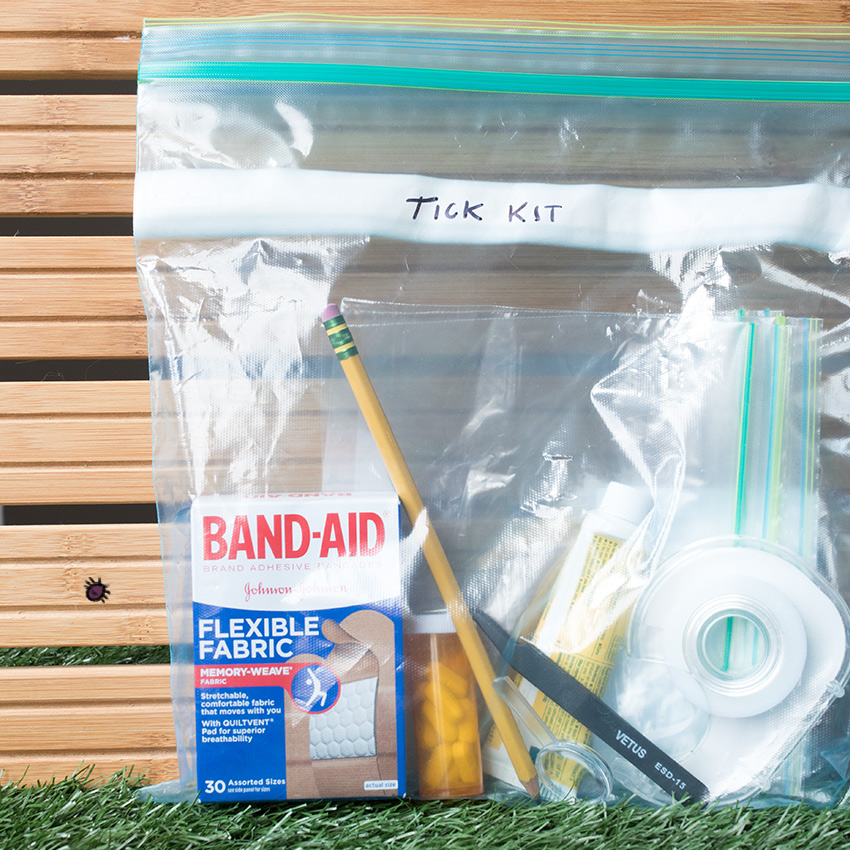
A tick kit is essentially a first aid emergency kit, but one that is put together specifically to deal with ticks and their bites.
Since nobody is immune to tick bites, every family should have a tick kit ready to go.
Luckily, they're very easy to make and only require a few simple items — you probably already have most of them!
Tick Kit Items
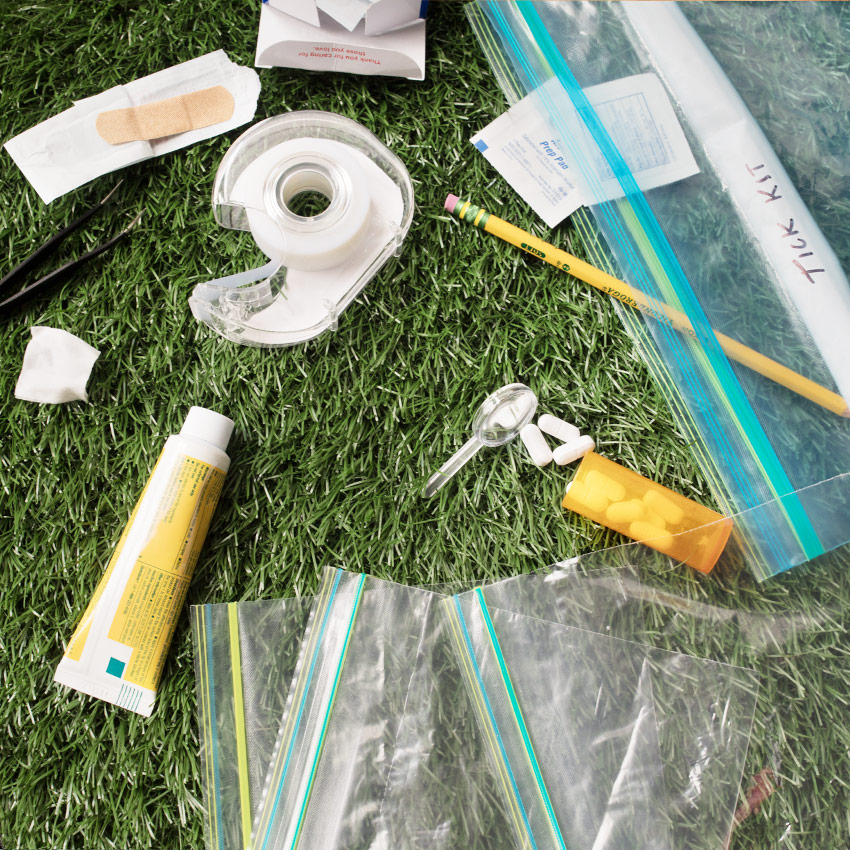
The following items are all you'll need for your tick kit:
- Fine-tipped tweezers
- Index cards
- Scotch tape
- Pen/pencil
- Rubbing alcohol and cotton balls (or alcohol wipes)
- Band-Aids
- Small plastic baggies
- Magnifying glass
- Antibacterial ointment
- Antihistamines
Tick Kit Item #1: Fine-Tipped Tweezers
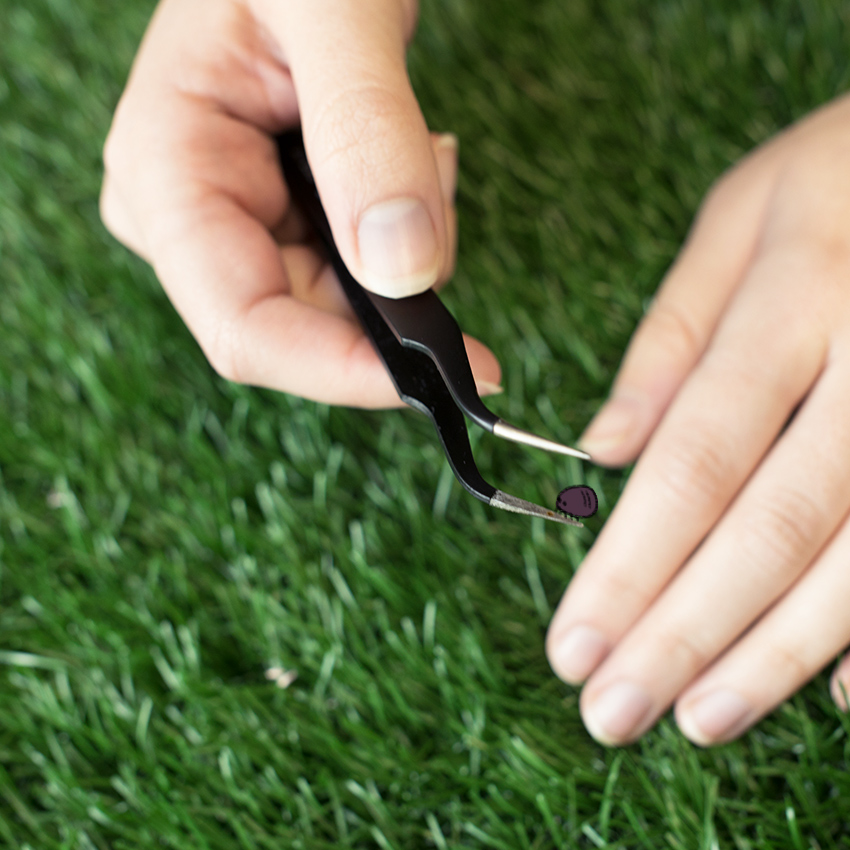
Although regular tweezers can be used if necessary, having fine-tipped tweezers makes it easier to remove the entire tick.
Metal fine-tipped tweezers are the best choice because they will be able to grasp as close to the skin as possible. They're also less likely to leave any part of the tick in the skin.
With the tweezers, pull the tick directly out of the skin using even pressure. Don't jerk or twist the tick.
Tick Kit Item #2: Index Cards And Scotch Tape
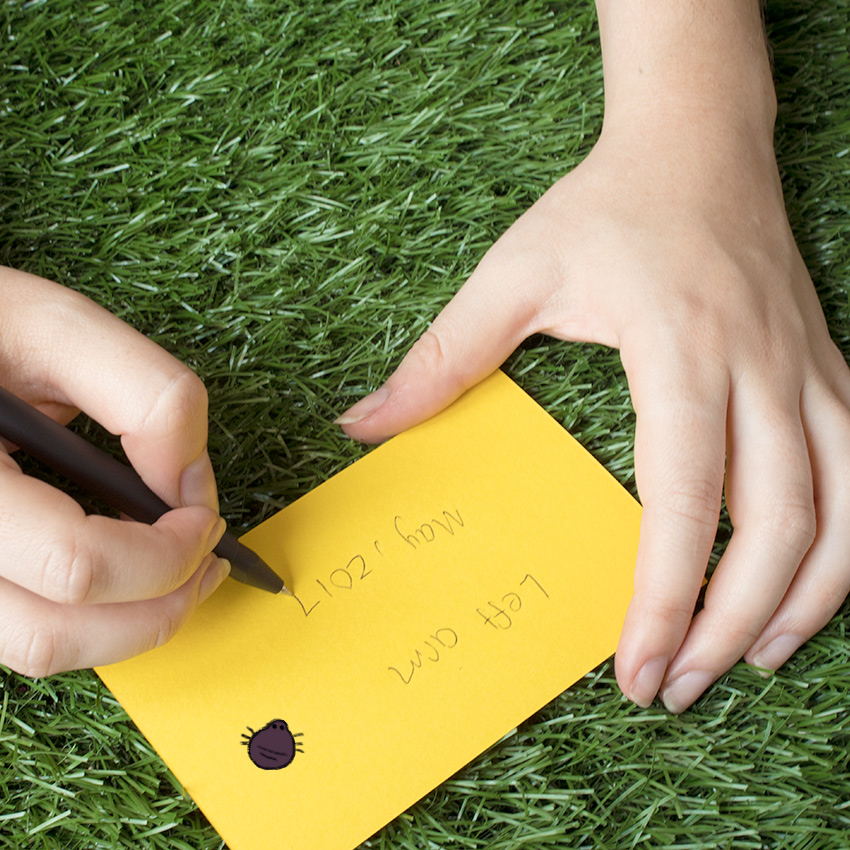
Once you've removed the tick from your skin, you'll need the index card, Scotch tape, and pen.
Tape the tick to the index card, and write down the time, date, and location of the tick bite.
This is helpful because if you notice symptoms later on, you can present this index card to your doctor, which will help them identify the type of tick and possibility of illness.
Tick Kit Item #3: Rubbing Alcohol
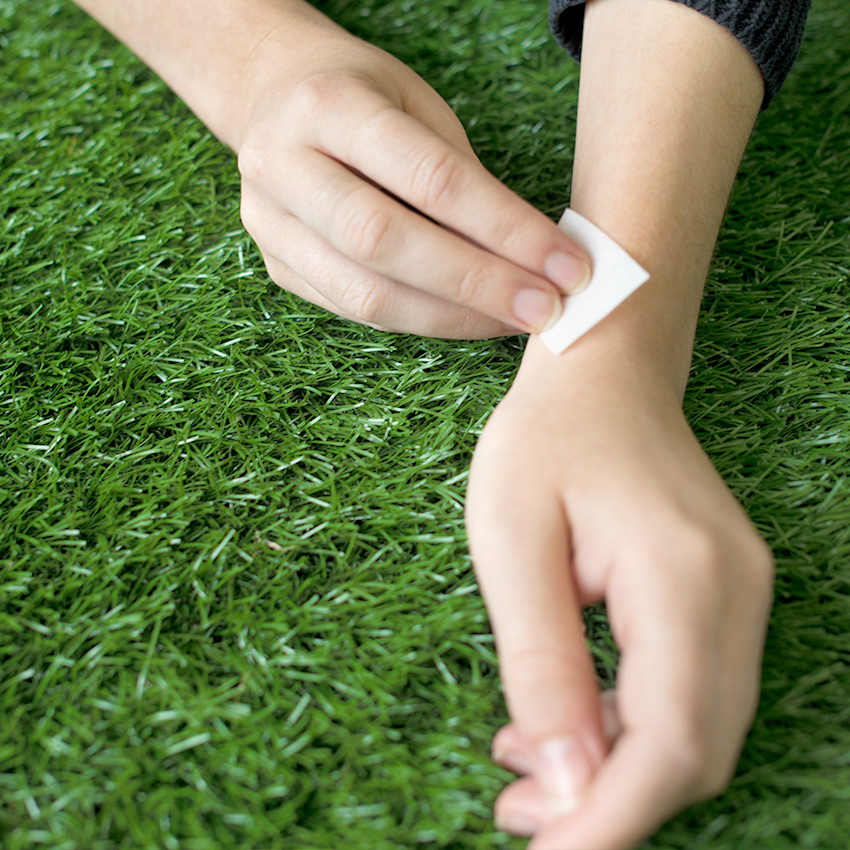
Next, use rubbing alcohol and a cotton ball or rubbing alcohol pads to clean the site of the bite.
If you're near your house, you can also wash the bite area with soap and warm water.
Tick Kit Item #4: Band-Aids
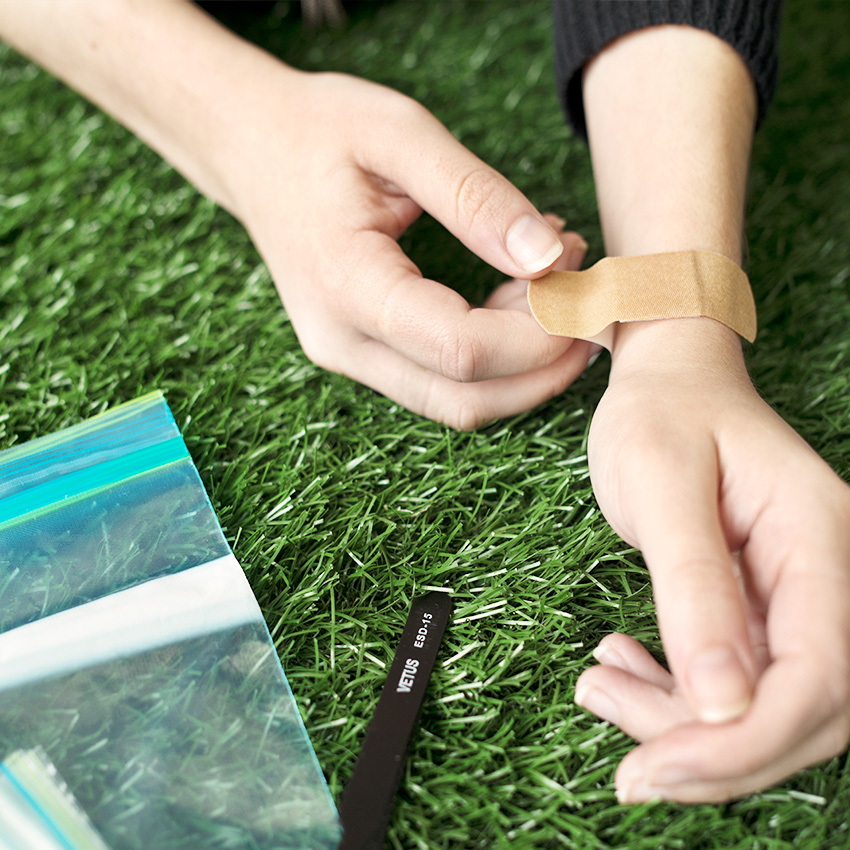
Once the bite area is thoroughly cleaned, you can cover it with a Band-Aid.
Using a Band-Aid to cover the bite will help keep you from scratching it, and it will keep the site clean.
Tick Kit Item #5: Small Plastic Baggies
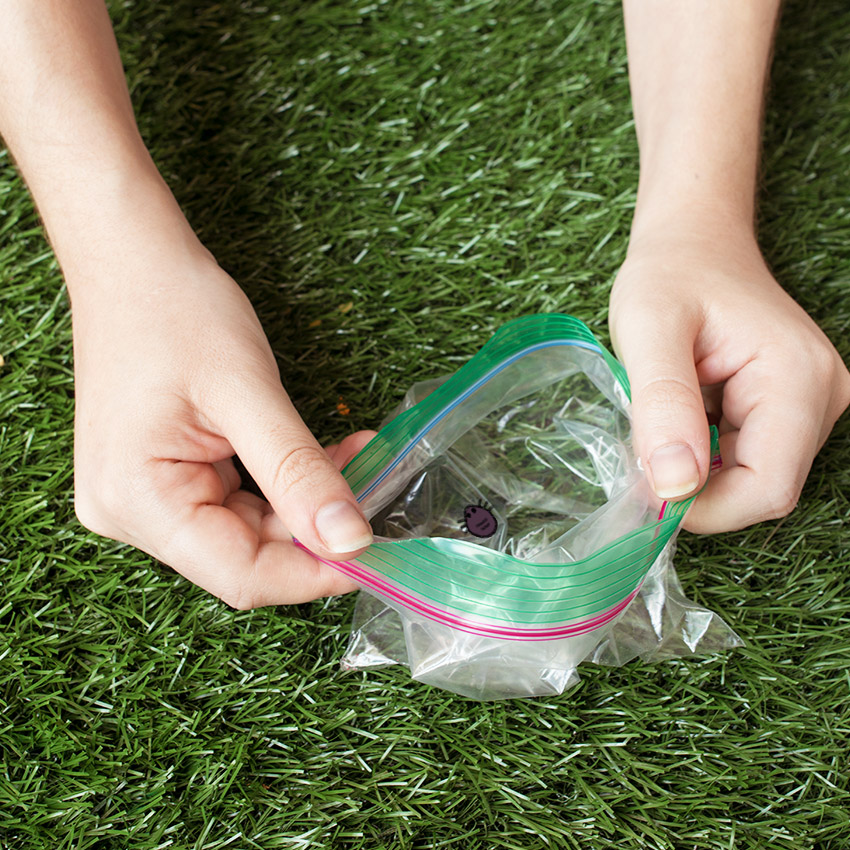
If you don't want to tape your tick to an index card, you can instead put it into a small plastic baggy.
Make sure you put the same notes onto an index card, and either put it in the bag with the tick or tape it to the outside of the bag.
Tick Kit Item #6: Magnifying Glass
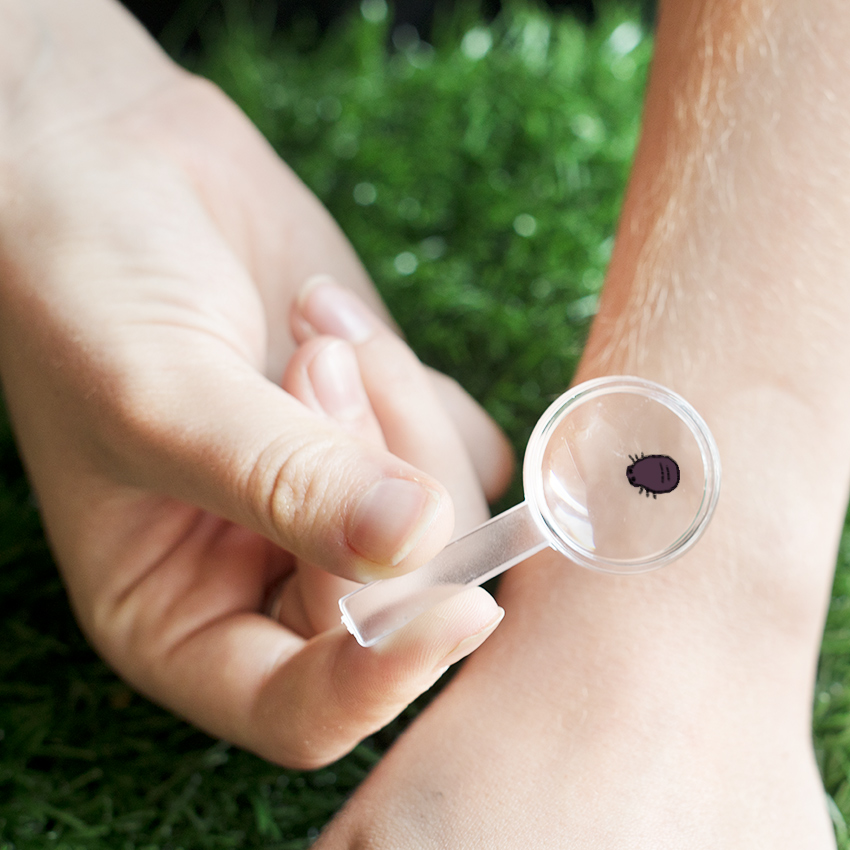
Another helpful item to keep in your tick kit? A small magnifying glass.
If you're more familiar with ticks, you can use the magnifying glass to figure out what type of tick it is.
Tick Kit Item #7: Antibacterial Ointment
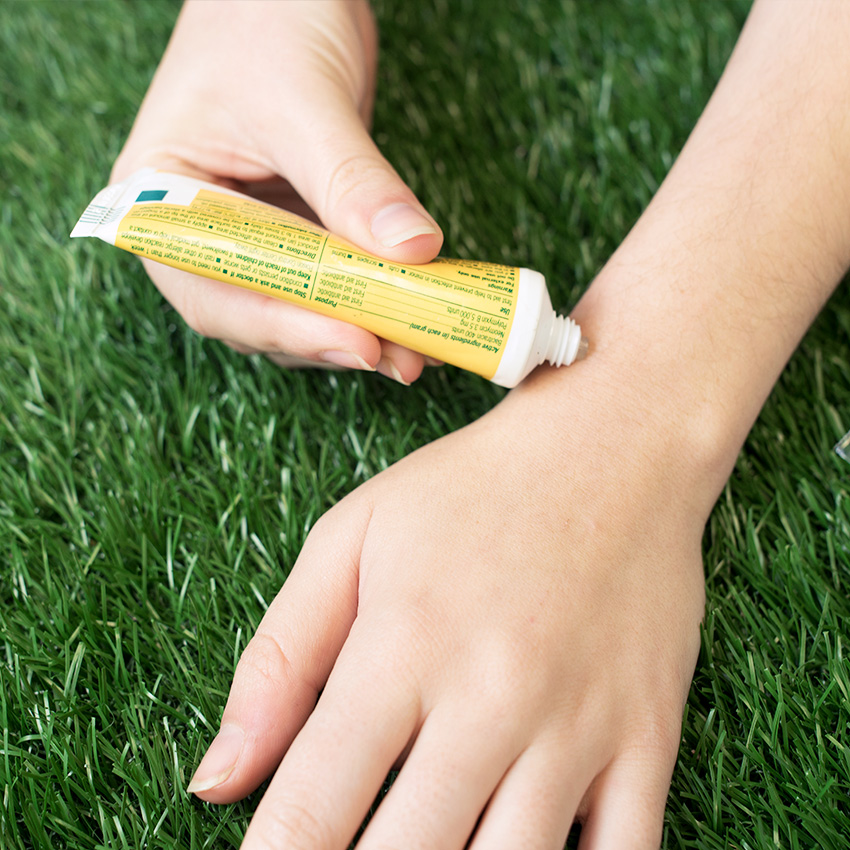
After the tick has been removed, the bite site may be a little itchy or uncomfortable.
To keep it clean and healthy, feel free to put a little dab of antibacterial ointment on it.
Tick Kit Item #8: Antihistamines
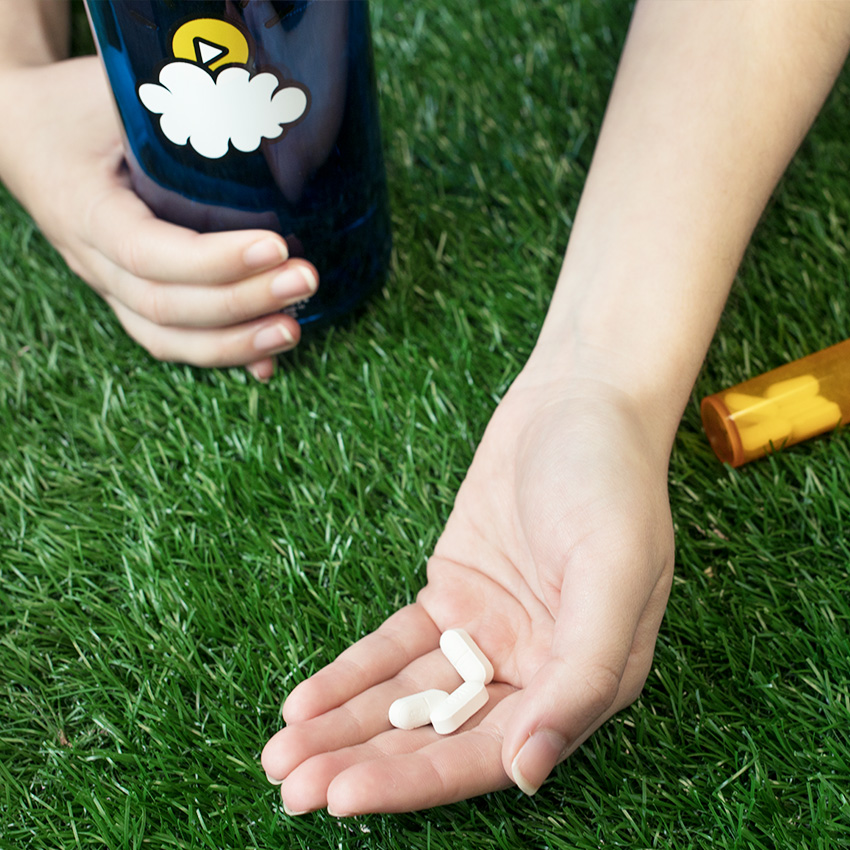
Because tick bites act like many other bug bites, they may cause some swelling and itchiness.
After you've removed the tick, you can take some antihistamines to relieve the itchiness.
Then, just monitor the bite until it heals to make sure no strange rashes or other symptoms appear.
If you think everyone should have a tick kit, please SHARE this article with your friends!




